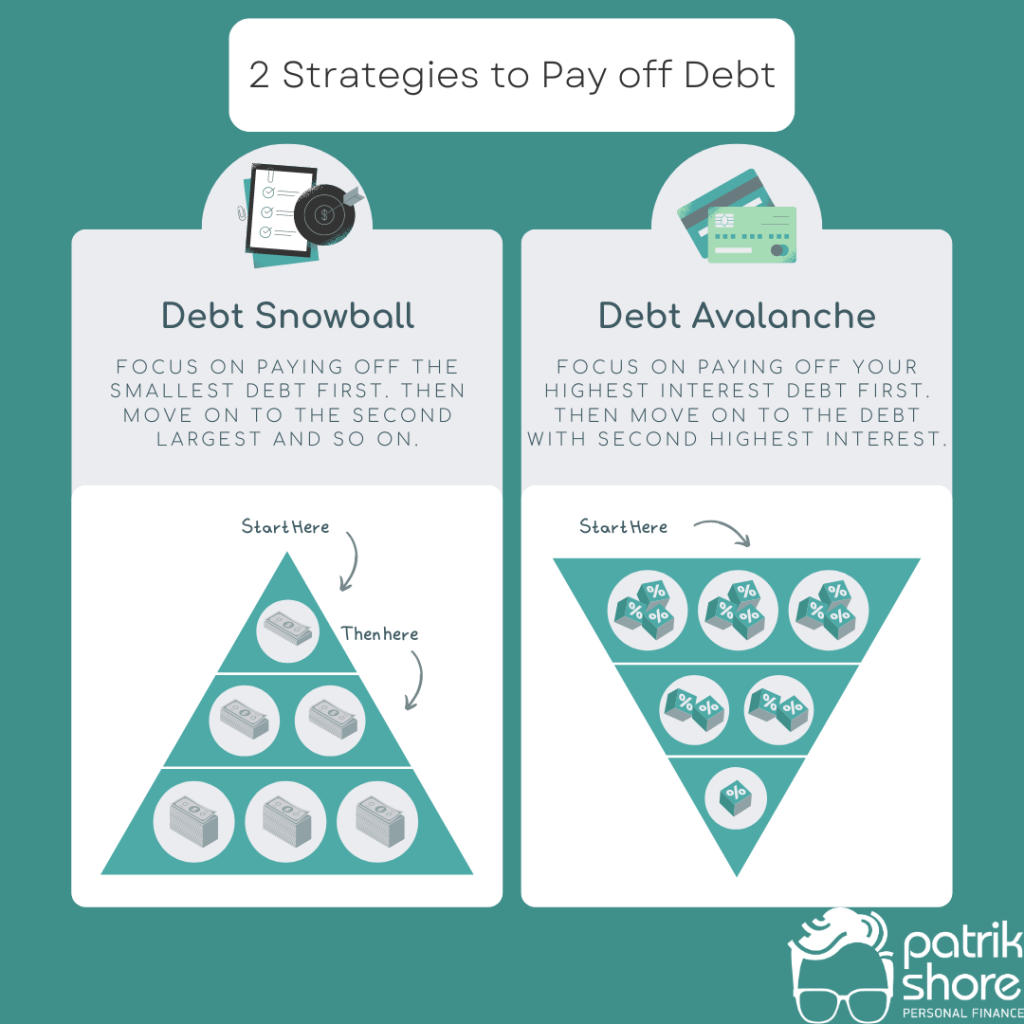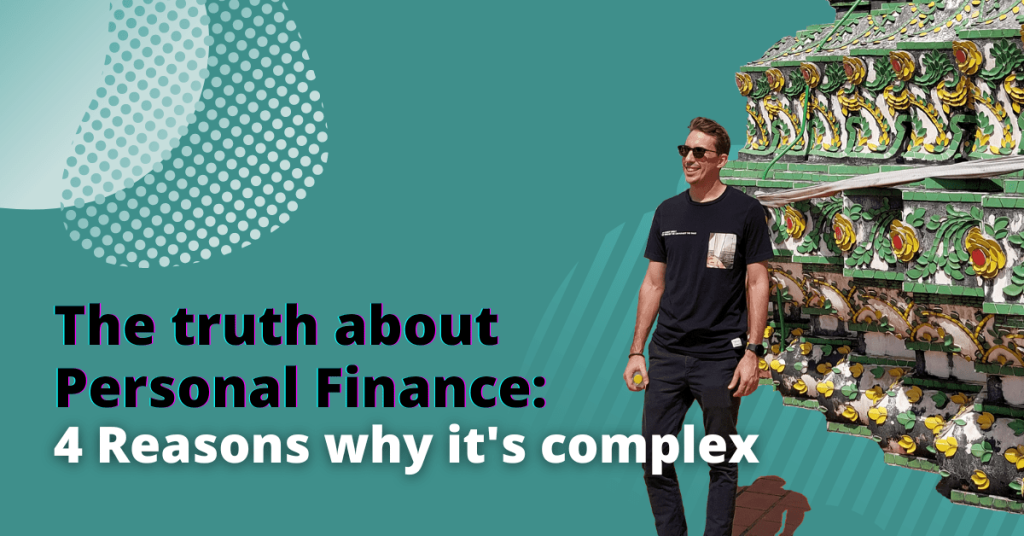Personal finance is a topic that is often oversimplified – and it bothers the hell out of me. You’ll see some articles that claim to have the secret to getting out of debt fast and others stating that all you need to do to retire early is to live below your means. While I do know those blog titles are often clickbait, the actual content normally doesn’t help anyone who is actually struggling either.
I met a guy over the weekend and spoke to him a little bit about what I’m doing with this personal finance business: teaching money management etc. He quizically wondered why, and what’s the point. He said that personal finance was easy. All you had to do was invest in one ETF and forget about it. While he was kind of correct on the investment side, albeit not fully appreciating the value of comprehensive risk management and diversification, the over-simplification of personal finance frustrated me.
Because the truth is, personal finance is complex. To those that like to oversimplify personal finance or financial success and those who don’t know why they might be struggling, this article is for you. I’ll be quickly covering four reasons why personal finance is hard and why it’s important to acknowledge this fact.
Quick Introduction to Personal Finance
Personal finance is the management of your money and financial decisions. It encompasses everything from budgeting and saving to investing and retirement planning. It’s a topic that affects all of us, regardless of how much money we make or where we are in life. The goal of personal finance is to help us achieve financial security and independence, which can lead to a better quality of life.
Oversimplifying Personal Finance – What It Means
The problem with oversimplifying personal finance is that it can lead to unrealistic expectations. When we see headlines that promise to help us get out of debt in 2 simple steps, we may feel like we’re doing something wrong if we’re not able to achieve that goal. The truth is, personal finance is a unique journey that takes time and effort. There’s no magic solution that will solve all our financial problems.
The Drawbacks of Oversimplification
One of the biggest drawbacks of oversimplification is that it can lead to financial mistakes. When we’re led to believe that there’s a one-size-fits-all solution to our financial problems, we may make decisions that are not in our best interest.
For example, if we’re told that the best way to get out of debt is to use a debt consolidation loan, we may not consider other options better suited to our circumstances. Similarly, if we’re told to simply invest in equity ETFs because they’ll grow the best over the long run, we don’t adequately take into account personal risk tolerance of which the ignorance often has detrimental effects.
So here are 4 reasons as to why personal finance is hard and why you might be struggling with personal finance issues.
Reason 1: Life is Unpredictable
One of the reasons why personal finance is hard is that life is unpredictable. Even if we have a solid financial plan in place, unexpected events can throw us completely off course. For example, a job loss, the passing of a loved one, an accident or theft can have a significant impact on our finances. It’s important to have an emergency fund and to be prepared for the unexpected, but not everything can be foretold.
Emergency funds, health insurance, life insurance, property insurance, rent guarantee insurance, dedicated savings for holidays and a financial plan are all great buffers to protect our financial health. While most people don’t even cover all of these bases, things like a broken laptop, stolen purse, lost passport or a sick dog can still financially hurt us.
Heck, last year a kid stole a car and drove it through my cousin’s fence into their pool in the middle of the night. How do you plan for that? Life is truly unpredictable.
Reason 2: Debt Management is Not a One-Size-Fits-All Solution
Another reason why personal finance is hard is that debt management is not a one-size-fits-all solution. There are many different strategies for getting out of debt, and what works for one person may not work for another. This is specifically why individual debt management plans exist.
Snowball Method
The snowball debt payment method is a strategy that focuses on paying off one’s smallest loan first, regardless of interest rates, while paying the minimum balance on other liabilities. Once that debt has been cleared, you then roll those payments onto the second smallest loan and so forth. The snowball method is a great way to pay off debt because the individual in question gets reassured that their debt plan is working when they clear their debt, however small. That way, they are more likely to stay on track.
Avalanche Method
The avalanche debt payment method focuses on clearing debt with the highest interest rates first, regardless of size, while paying the minimum balance on other liabilities. This repayment plan doesn’t offer individuals the satisfaction of clearing debt fast, but it can save them a lot of money on interest over the long run.

Choosing a debt repayment method isn’t the only thing you have to do when managing debt. You also have to consider your monthly cash flow, overall net worth, risk appetite, and financial stability amongst other things. It’s not easy to manage debt or become debt free. But a good, unique plan can get you on your way.
Reason 3: Inherited Financial Habits are Hard to Break
This is actually one of my favourites. More often than not, our financial habits are shaped by our upbringing and the habits of those around us. If we grew up in a household where money was tight, we may have developed a scarcity mindset that makes it difficult to save money. If we grew up in a household where money was plentiful, we may have developed financial habits that make it difficult to live within our means.
Similarly, if no one taught us how to invest, we likely don’t start investing until much later in life or when people in our surroundings happily make expensive purchases with credit cards, we’re likely to do the same.
Sometimes we can inherit the opposite, but equally as treacherous financial habits. We might grow up watching people invest money in incredibly risky ventures with detrimental effects, leading us to never invest a cent because we’re scared of losing it all. Or having guardians who spend so frivolously, that we pinch every penny.
Breaking these inherited financial habits is always challenging and overcoming that hurdle is not as simple as “just do it”. However, with a plan and a basic understanding of financial literacy, it does become much easier.
Reason 4: We All Have Unique Financial Burdens
Finally, we all have unique financial burdens that make personal finance hard. Some of us may be dealing with student loan debt and bad financial decisions from the past, while others may be caring for aging parents or grandparents.
Some of us may be struggling to make ends meet on a low income, while others may be dealing with the financial cost of raising a newborn and paying for child care. It’s important to acknowledge these unique burdens and to seek out specific resources to manage them.
Personal Finance Resources for Beginners
If you’re new to personal finance, there are many resources available to help you get started. Books like “The Total Money Makeover” by Dave Ramsey or “Your Money or Your Life” by Vicki Robin and Joe Dominguez can provide a solid foundation for your financial journey. Websites like NerdWallet or The Balance offer practical advice on everything from budgeting to investing.
Seeking Professional Advice for Personal Finance
While there are many resources available for beginners, sometimes it’s best to seek out professional advice. A financial planner can help you create a personalised financial plan that takes into account your unique circumstances and goals. They can also provide guidance on investing, retirement planning, and basic financial strategies to help you get where you want to be.
Conclusion
In conclusion, personal finance should never be oversimplified. It’s important to acknowledge this fact and to avoid incorporating simple financial strategies to tackle complex financial problems. Life is unpredictable, debt management is not a one-size-fits-all solution, inherited financial habits are hard to break, and we all have unique financial burdens. But with the right resources and professional guidance, we can achieve financial security and independence. If you think you need a bit of help with your finances, don’t hesitate to reach out for a free consultation.


